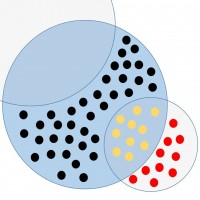Der “Ausschuss für Wissenschaft und Technologie” des britischen Unterhauses sprach sich am Montag überraschend dafür aus, homöopathische Behandlungen aus dem öffentlichen Leistungskatalog zu streichen. Begründung: Es wirke lediglich ein Placebo-Effekt.
Unter Berufung auf einen 275-seitigen Untersuchungsbericht kam das “Science and Technology Committee” zu folgendem Schluss:
In a report published today, the Science and Technology Committee concludes that the NHS should cease funding homeopathy. It also concludes that the Medicines and Healthcare products Regulatory Agency (MHRA) should not allow homeopathic product labels to make medical claims without evidence of efficacy. As they are not medicines, homeopathic products should no longer be licensed by the MHRA.
Kritisiert wurde insbesondere die vom britischen Gesundheitsministerium im Jahr 2006 eingeführte Regel, dass homöopathische Mittel ohne einen wissenschaftlich anerkannten Nachweis – wie beispielsweise eine Doppelblind-Studie – allein auf der Basis sogenannter Provings eine Medikamentenzulassung erhalten können:
The report also examines the MHRA licensing regime for homeopathic products. The Committee is particularly concerned over the introduction of the National Rules Scheme (NRS) in 2006, as it allows medical indications on the basis of study reports, literature and homeopathic provings and not on the basis of randomised controlled trials (RCTs) – the normal requirement for medicines that make medical claims.
Besonders deutliche Worte fand Ausschussvorsitzender Phil Willis:
“It sets an unfortunate precedent for the Department of Health to consider that the existence of a community which believes that homeopathy works is ‘evidence’ enough to continue spending public money on it. This also sends out a confused message, and has potentially harmful consequences. We await the Government’s response to our report with interest.”
Auch der Untersuchungsbericht lässt keine Deutlichkeit vermissen:
7. We conclude that the principle of like-cures-like is theoretically weak. It fails to provide a credible physiological mode of action for homeopathic products. We note that this is the settled view of medical science.
8. We consider the notion that ultra-dilutions can maintain an imprint of substances previously dissolved in them to be scientifically implausible.
9. Research funding is limited and highly competitive. The Government should continue its policy of funding the highest quality applications for important scientific research determined on the basis of peer review.
11. In our view, the systematic reviews and meta-analyses conclusively demonstrate that homeopathic products perform no better than placebos.
16. We do not doubt that homeopathy makes some patients feel better. However, patient satisfaction can occur through a placebo effect alone and therefore does not prove the efficacy of homeopathic interventions.
Die Wahrscheinlichkeit, dass es tatsächlich zu einer Streichung homöopathischer Mittel aus dem Leistungskatalog kommt – für die laut BBC jährlich etwa 4 Millionen britische Pfund aufgewendet werden – ist jedoch eher gering. Immerhin ließ das Gesundheitsministerum noch am Tag der Berichtsveröffentlichung verlauten, man wolle die Entscheidung, ob der Einsatz homöopathischer Mittel angebracht sei oder nicht, lieber den behandelnden Ärzten überlassen und nicht per Regierungsbeschluss vorschreiben:
“Our view is that the local NHS and clinicians, rather than Whitehall, are best placed to make decisions on what treatment is appropriate for their patients – this includes complementary or alternative treatments such as homeopathy.”
Auch die British Association of Homeopathic Manufacturers hat – verständlicherweise – bereits Protest eingelegt und verweist auf den – gefühlt auch auf den ScienceBlogs bereits zwei dutzend Mal diskutierten und erläuterten – Effekt der vermeintlichen Wirksamkeit homöopathischer Mittel bei Haustieren und Kleinkindern:
“There is good evidence that homeopathy works, for example in animals and babies, neither of which experience placebo effects.”
Eine Videoaufzeichnung der Ausschussitzung findet sich übrigens auf youTube – den ersten Teil habe ich unten eingebunden. Der vom Ausschussvorsitzenden befragte Vertreter eines britischen Pharma-Unternehmens, das homöopathische Mittel herstellt, unternimmt einen wirklich sehenswerten Versuch, irgendwie um die Frage nach Beweisen für die Wirksamkeit homöopathische Mittel herumzukommen…



Kommentare (13)